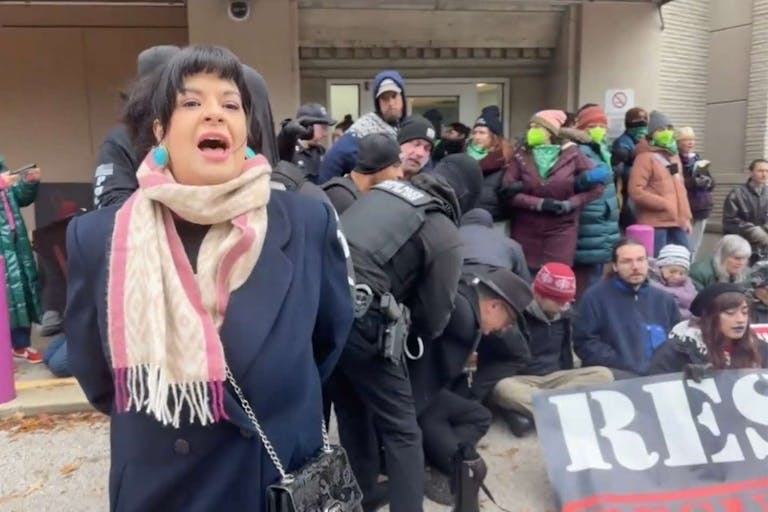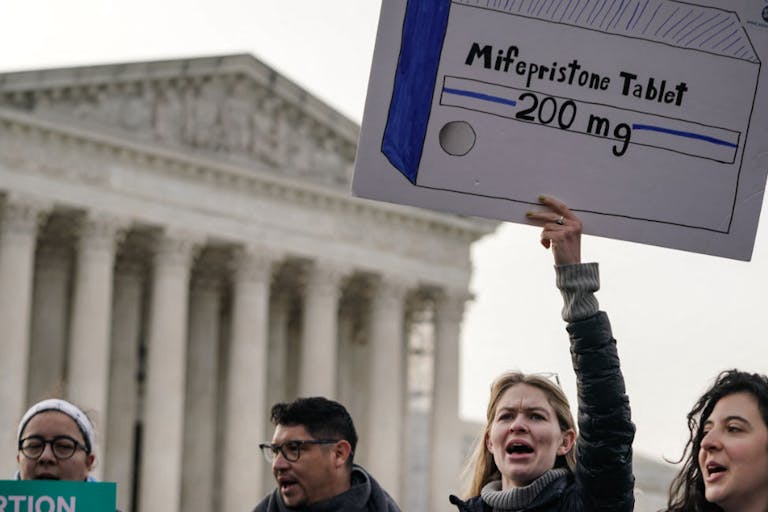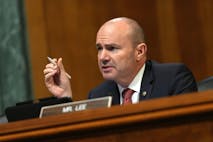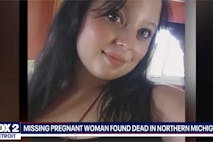
Activists arrested for blockading doors at TN Planned Parenthood
Nancy Flanders
·
Abortion Pill·By Bridget Sielicki
Louisiana law regulating abortion pill as a controlled substance goes into effect
A Louisiana law requiring the classification of the abortion pill drugs mifepristone and misoprostol as controlled substances went into effect on October 1.
Act 246, also known as the Catherine and Josephine Herring Act, was sponsored by State Senator Thomas Pressly, who said his sister was unknowingly given the abortion pill mifepristone by her husband, who wanted to kill their preborn child.
Pressly said his bill is meant to ensure that mifepristone and misoprostol do not end up in the wrong hands — particularly as the abortion pill has become increasingly easy to get through mail-order services.
“This bill really does two things,” he explained. “One, we’re making sure the pills are being able to be used for legitimate health care reasons. They’re going to continue to be able to be used. They can be in hospitals when emergencies come up. And they can be prescribed outside of a hospital setting when necessary as well. By a doctor, by a nurse practitioner, by a physician’s assistant. At the same time, if these pills are used for improper means and things that are not allowed under Louisiana law, such as abortion, then the bad actors will be held responsible and liable in a criminal fashion for that act,” Pressly said.

Louisiana Governor Jeff Landry signed the legislation in May. “Requiring an abortion inducing drug to be obtained with a prescription and criminalizing the use of an abortion drug on an unsuspecting mother is nothing short of common sense,” he said at the time. “This bill protects women across Louisiana.”
Since Landry’s signature, there have been many abortion advocates warning that the law is dangerous to women who may be denied access to mifepristone and misoprostol for purposes other than abortion.
Article continues below
Dear Reader,
Have you ever wanted to share the miracle of human development with little ones? Live Action is proud to present the "Baby Olivia" board book, which presents the content of Live Action's "Baby Olivia" fetal development video in a fun, new format. It's perfect for helping little minds understand the complex and beautiful process of human development in the womb.
Receive our brand new Baby Olivia board book when you give a one-time gift of $30 or more (or begin a new monthly gift of $15 or more).
Attorney General Liz Murrill released a statement last month clarifying the law to assuage any misinformation. “[Act 246] does not limit a healthcare provider’s ability to use, prescribe, or fill these medications for legitimate health purposes nor does it impose restrictive burdens on access for emergency purposes,” she stated.
She went on:
To be clear: nothing in Louisiana laws stands in the way of a doctor providing care that stabilizes and treats emergency conditions. Any statements to the contrary are flatly incorrect. Any hospital or doctor at any hospital or emergency room who refuses to treat and stabilize a woman having a miscarriage or suffering with an ectopic pregnancy could be committing both medical malpractice and violating federal law. Louisiana law should not be read as requiring hospital or emergency room staff to refuse such emergency care.
Nearly all preborn children are protected from abortion in Louisiana — a fact Murrill emphasized in her statement with the reminder that “intentional delivery” of abortion pills via online or mail-order methods is strictly prohibited.
Live Action News is pro-life news and commentary from a pro-life perspective.
Contact editor@liveaction.org for questions, corrections, or if you are seeking permission to reprint any Live Action News content.
Guest Articles: To submit a guest article to Live Action News, email editor@liveaction.org with an attached Word document of 800-1000 words. Please also attach any photos relevant to your submission if applicable. If your submission is accepted for publication, you will be notified within three weeks. Guest articles are not compensated (see our Open License Agreement). Thank you for your interest in Live Action News!

Nancy Flanders
·
Abortion Pill
Bridget Sielicki
·
Abortion Pill
Bridget Sielicki
·
Abortion Pill
Nancy Flanders
·
Abortion Pill
Carole Novielli
·
Abortion Pill
Isabella Childs
·
Politics
Bridget Sielicki
·
Abortion Pill
Bridget Sielicki
·
Abortion Pill
Bridget Sielicki
·
International
Bridget Sielicki
·
Human Interest
Bridget Sielicki
·